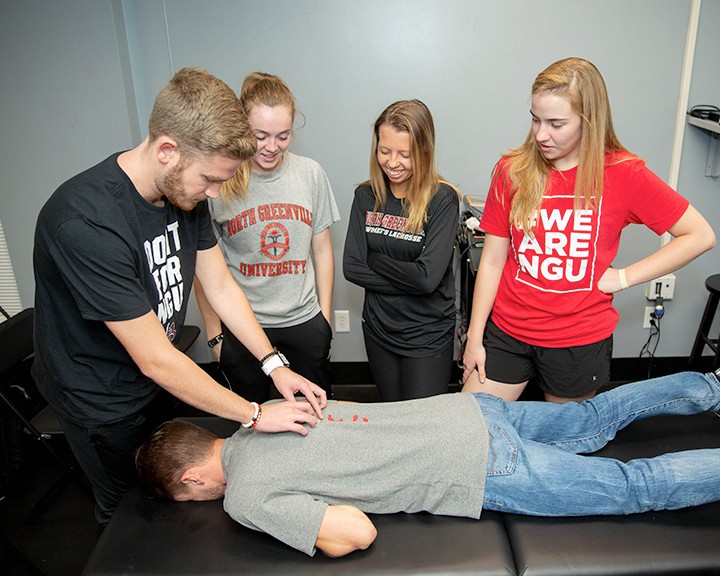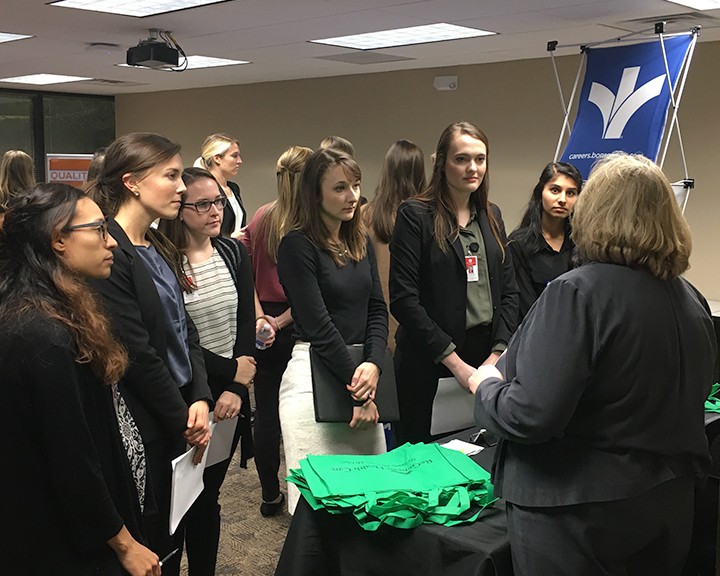Year 1 Sample Courses
- College Algebra
- Intro to Health Promotion and Wellness
- Principles of Biology
- Introduction to Computer Science
- Probability and Statistics
Empower others to live life to the fullest – just as God designed. That’s health science, at NGU.
And it takes someone like you, a health fanatic, to help others make the right decisions. From individual nutrition and fitness, to community-wide behavioral change, countless careers promote an elevated view of health.
Athletic trainer. Chiropractor. Nurse. Nutritionist. Physical or occupational therapist. Strength and conditioning professional. Even speech pathologist. Push the limits of your future with a Bachelor of Science in Health Science degree from NGU.
Choose from three concentrations.
Health science is a multidisciplinary field that focuses on understanding and improving human health.
By studying health science, individuals contribute to healthcare advancements and promote well-being in various professional roles.
Biomedical Engineer
Clinical Manager
Clinical Research Coordinator
Health Educator
Health Services Manager
Healthcare Administrator

Not all internships are created equal. Office memos and coffee runs aren’t what you signed up. So, leave the 9-to-5 behind as you complete an intensive, 375-hour internship in your chosen area of study. It’s hands-on experience designed to launch your career to the next level.
Each spring, NGU’s Health Science Department organizes a health fair on campus. Serve your NGU family and our local community. Invite local vendors to provide health screenings. Analyze these efforts and help maximize their impact on the health of our region.


Want to gain experience organizing a health-based event while encouraging your peers to get active? We’ve got you! Each fall, help coordinate NGU’s “Feel the Hill” 5K. Plan, promote, and operate a community health initiative without leaving campus.

You’ll also take Chapel for the first seven semesters, and Cultural Events for the first four semesters. This is the NGU difference, how you find your peak performance and elevate your perspective, intellectually, emotionally, and spiritually.
North Greenville University (NGU) admits students of any race, color, national and ethnic origin to all the rights, privileges programs, and activities generally accorded or made available to students at the school. It does not discriminate on the basis of race, color, national and ethnic origin in the administration of its educational policies, admissions policies, scholarship and loan programs, and athletic and other school-administered programs.